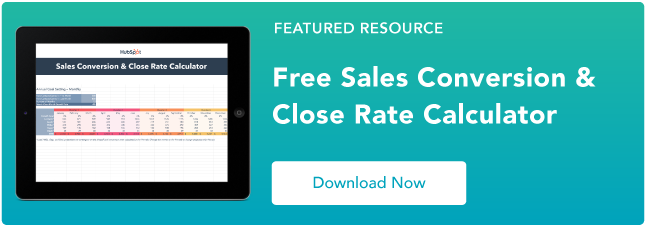Prospecting is a salesperson's lifeblood. But it's not easy to do well, and it's not that easy to learn, either.

But don't worry. The best prospectors each have their own special habits and routines, but they share the following eight characteristics. Work on these behaviors and you just might find yourself filling the top of your sales pipeline better and faster than you ever have.
1) They actually set aside time to prospect.
You know when you don’t do the dishes? It’s kind of an annoying chore despite it not being that hard. So you push it off just a little more each day, and before long you have a sink full of dirty china right before you have 10 guests coming over for a dinner party, when it’s too late.
Prospecting is an easy thing to neglect, and by the time you remember you haven’t done it -- hello, empty pipeline! -- it’ll take quite a while to get yourself back to where you should be.
That’s why the best reps make sure to set aside a block of time to prospect each day or week, and hold themselves accountable to doing it.
2) They don’t reinvent the wheel.
Sales is far from a volume game, but the reality is that you’re going to have to pick up the phone a certain number of times or send a certain number of emails to get the number of responses you need. Even in a perfect world, you’ll probably never have a 1:1 ratio of calls made to deals closed.
So you’ll have to do a good deal of prospecting to generate the pipeline you need. And that’s impossible if you try to develop some new system of prospecting each time you do it. The best prospectors develop an effective process that can be repeated at scale so they can prospect efficiently.
3) They’re really good at identifying good fits.
This one seems like a no-brainer, but it’s worth saying: Great prospectors know their company’s ideal buyer profiles and personas cold. They can spot companies that are similar to their best customers, and they can recognize patterns of activity by decision makers that indicate it’s the right time to reach out.
4) They use technology to their advantage.
We’re in the 21st century. More information is available to salespeople than ever before, and not using it to prospect is doing yourself a huge service. Great prospectors use every tool they have at their disposal to its fullest extent. Whether it’s knowing your CRM and marketing automation systems inside and out, using LinkedIn, Google Alerts, or other online tools, reps who excel at prospecting incorporate technology into every step of their routine.
5) They know how to balance quantity and quality.
Like I said, prospecting is partially a volume game and partially about the quality of leads you can source. It’s essential to be discerning enough that you’re not calling everybody -- a waste of time -- but fast enough that you don’t spend half your day trawling LinkedIn. For four strategies on balancing quantity and quality in prospecting, check out this blog post.
6) They build social media into their routine.
Whether or not you’re sold on social selling, you need -- at minimum -- to have a social presence. Monitoring your prospects’ social activity is one of the best ways to spot early indicators that they’re thinking about making a purchase or dealing with business pain. Look for questions about internal problems, posts asking about tools, or other posts that suggest a prospect’s having a problem you can help with.
7) They don’t jump the gun when they connect with a prospect.
It’s exciting when you finally get someone on the phone. But remember that an immediate pitch, hard sell, or frankly any topic of conversation that’s focused on making a sale will just as quickly disconnect the two of you. Buyers want salespeople to be focused on their problems, not how you need to hit quota or would love to sell them a set of steak knives. So use the initial call to do some light qualifying of your buyer and feel out how good of a fit they are.
8) They don’t take meetings with just anybody.
While booking meetings is the ultimate goal of prospecting, you need to make sure they’re good meetings -- otherwise it’s just a waste of your time to move prospects through the sales process. So be on the lookout for any red flags that signal that your buyer isn’t a good fit. Here’s a disqualification checklist to keep handy.
What do you think the best prospectors have in common? Let us know in the comments below.
![Download Now: Sales Conversion Rate Calculator [Free Template]](png/059a7eef-8ad9-4bee-9c08-4dae23549a29.png)









